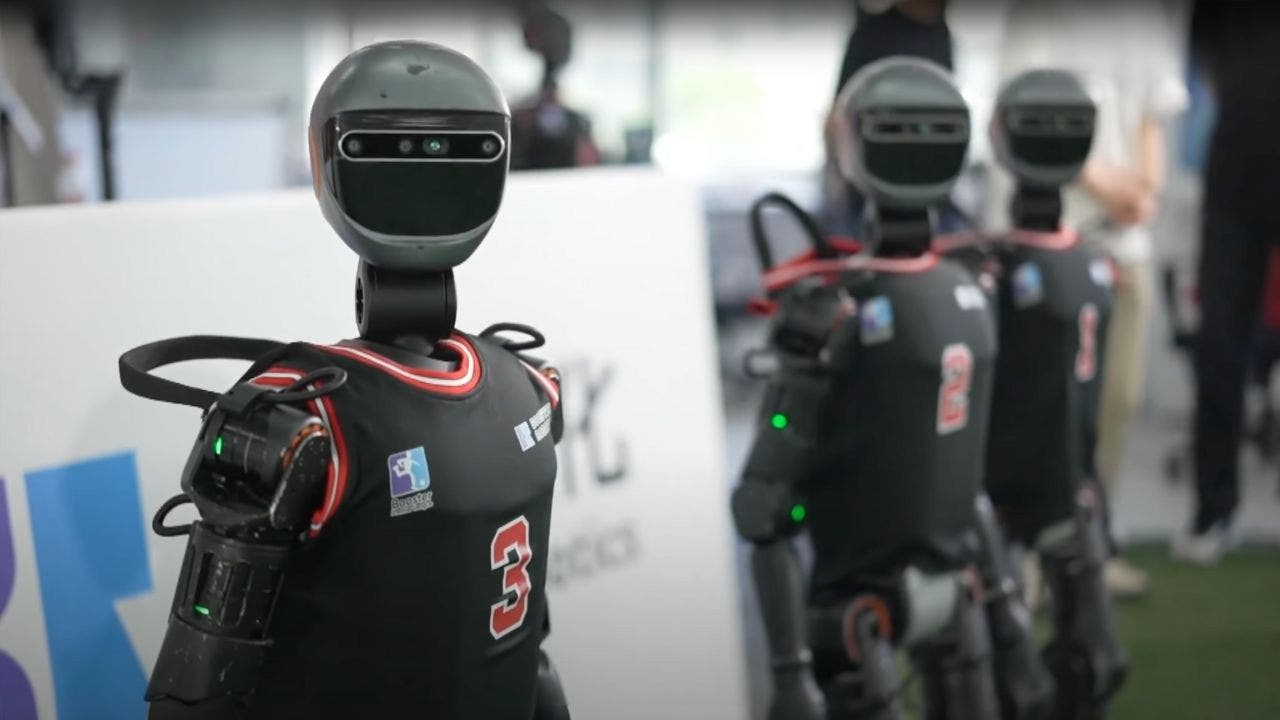China hosts first AI-powered soccer tournament with autonomous robots

In a groundbreaking display of technological advancement, China recently hosted its first AI-powered soccer tournament featuring four teams of autonomous humanoid robots. The event, which took place in Beijing’s Yizhuang Development Zone, was part of the Robo League robot football tournament and marked a significant milestone for real-world artificial intelligence competition in China.
Unlike traditional remote-controlled robot matches, this tournament featured zero human intervention. Each team consisted of three active humanoid robots plus a substitute, playing two ten-minute halves with a five-minute break. These robots were equipped with AI and sensors that allowed them to run, walk, kick, and make real-time decisions on their own. Cameras and optical sensors enabled them to detect the ball with more than 90% accuracy from a distance of 65 feet, as well as recognize teammates, field markings, goals, and opponents.
Dou Jing, executive director of the organizing committee, described the event as the first fully autonomous AI robot football match in China, showcasing a combination of technological innovation and industrial application. The tournament not only provided entertainment but also offered a glimpse into how AI and robotics could integrate into public life, demonstrating the progress that has been made in real-world autonomy and how these systems can function in unpredictable environments.
The success of this tournament has paved the way for the upcoming 2025 World Humanoid Robot Sports Games, which will be hosted in Beijing and will feature eleven events modeled after traditional sports. These games will include track and field, gymnastics, soccer, synchronized dancing, and more, showcasing the capabilities of humanoid robots in various athletic endeavors.
Despite facing challenges such as dynamic obstacle avoidance, the robots demonstrated impressive skills during the tournament, with collisions being allowed as long as they were not malicious. The winning team, THU Robotics from Tsinghua University, defeated the Mountain Sea team from China Agricultural University with a score of 5-3.
This event, along with a previous humanoid vs. human long-distance race, highlights the rapid progress being made in the field of robotics. As Beijing prepares to host the global games in 2025, the future of autonomous technology looks promising, with intelligent machines poised to play a significant role in everyday life.
Watching robots play soccer without human intervention provides a glimpse into the potential of AI and robotics. While these machines may still be in the early stages of development, their capabilities are evolving rapidly. As we look ahead to the future, the possibilities for autonomous technology are endless, and the integration of intelligent machines into everyday life seems increasingly likely.




